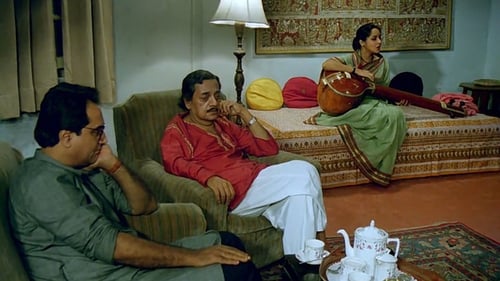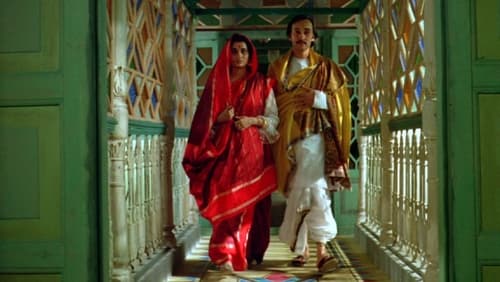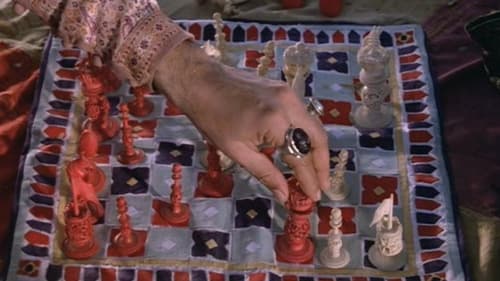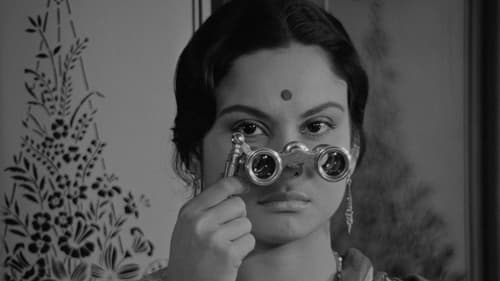
Makeup Artist
A well-off Indian family is paid an unexpected, and rather unwanted, visit by a man claiming to be the woman's long lost uncle. The initial suspicion with which they greet the man slowly dissolves as he regales them with stories of his travels, tales that are at odds with their conventional middle class perspective on the world.

Makeup Artist
When a wealthy patriarch falls ill on his 70th birthday, three of his sons rush in from Calcutta, leading to a reunion filled with painful ironies and lingering disillusionment. As the family—including an addled fourth son (Soumitra Chatterjee) who lives with the old man—watches and waits, the static occasion brings out simmering tensions in their family dynamics, from the father’s moral rectitude to the business ambition of two sons and the withdrawal of their siblings.

Makeup Artist
Ashoke Gupta is an idealistic doctor working in a town near Calcutta. He discovers that the water at a popular temple is the source of an outbreak of typhoid and hepatitis. In order to save lives, he risks his career to try and call attention to this polluted water source, while a local group of building contractors attempt to discredit him in various ways.

Makeup Artist
When the movie opens, a woman is recalling the events that molded her perspective on the world. Years ago, her husband, a wealthy Western-educated landowner, challenged tradition by providing her with schooling, and inviting her out of the seclusion in which married women were kept, to the consternation of more conservative relatives. Meeting her husband's visiting friend from college, a leader of an economic rebellion against the British, she takes up his political cause, despite her husbands warnings. As the story progresses, the relationship between the woman and the visitor becomes more than platonic, and the political battles, pitting rich against poor and Hindu against Moslem, turn out not to be quite as simple as she had first thought.

Makeup Artist
It is the year 1856. Nawab Wajid Ali Shah is the king of Awadh, one of the last independent kingdoms of India. The British colonialists, intent on controlling this rich land, have sent general Outram on a secret mission to clear the way for an annexation. Pressure is mounting amidst intrigue and political manoeuvres, but the Nawab whiles away his time in pursuit of pleasure and religious practice. The court is of no help either—Court nobles Mir and Mirza, ignoring the situation of their country and all their duties towards their families, spend their days playing endless games of chess. The film is based on Munshi Premchand's short story of the same name.

Makeup Artist
In 1870s India, Charulata is an isolated, artistically inclined woman who sees little of her busy journalist husband, Bhupati. Realizing that his wife is alienated and unhappy, he convinces his cousin, Amal, to spend time with Charulata and nourish her creative impulses. Amal is a fledgling poet himself, and he and Charulata bond over their shared love of art. But over time a sexual attraction develops, with heartbreaking results.

Makeup Artist
Life at home changes when a housewife from a middle-class, conservative family in Calcutta gets a job as a salesperson.

Makeup Artist
Played out in real time, several complex family dramas intersect in the landscape of the Himalayan foothills, allowing the Bengali auteur to examine the class and generational differences of postcolonial India while celebrating the hopes of a society in transition.

Makeup Artist
Set in the turbulent 1930s, this is the story of a poor Chinese hawker selling his merchandise, Chinese silk, in the streets of Calcutta. This was the time when China was repulsing a brutal attack of militarist Japan and when an outraged Rabindranath Tagore wrote to his friend in Japan, the great poet Noguchi: “I wish your countrymen, whom I love so much, not success but remorse”. This film holds the dubious distinction of being the first to be banned (though temporarily) in independent India.








